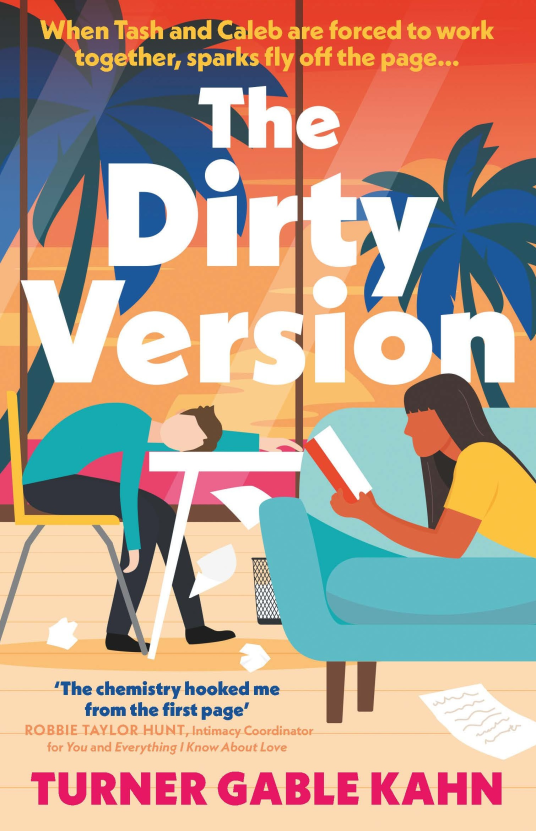The Dirty Version by Turner Gable Kahn
For every outspoken woman who’s ever wondered if she could still be loved.
Turner Gable Kahn’s The Dirty Version is a sharp, bold, and surprisingly tender story that explores love, art, and what it means to be unapologetically yourself.
At the center of the novel is Tash, a feminist writer whose debut novel is being adapted for the screen. The only problem? Her ex-fiancé dumped her after realizing just how many details from their relationship ended up in the book. Now, with her personal life in shambles and her work under the Hollywood microscope, Tash throws herself into the adaptation process—working closely with Caleb, a calm and steady counterbalance to her fiery personality.
What I loved most about this novel was Tash herself. She comes on strong—sometimes brash, sometimes overwhelming—but always real. I especially connected with the novel’s exploration of whether outspoken women can be loved without compromise—something I’ve wrestled with in my own life.
The book also shines in its discussions around sex in cinema and the artistic roots of burlesque. These elements felt refreshingly honest, layered, and necessary, grounding the romance in larger conversations about performance, power, and self-expression.
As for the romance, Tash’s exes are frustratingly dismissive, which makes Caleb’s patience and understanding all the more appealing. The dynamic between them felt balanced, healing, and ultimately satisfying.
That said, I did feel one important thread was left unresolved: Tash’s conflict with her mother. It was such a big part of her character arc that leaving it somewhat open-ended felt like a missed opportunity for closure.
Overall, The Dirty Version is a bold, modern romance that doesn’t shy away from big questions about art, sex, feminism, and self-worth. It’s messy in all the right ways, but also thoughtful and moving. I recommend it for readers who enjoy character-driven romances that go beyond love stories and dig deep into identity, creativity, and the vulnerability of being truly seen.
RATING: 4/5
